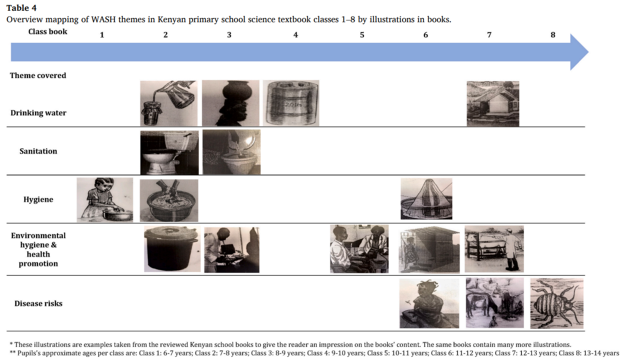Spatial Data Science
5 Considerations for eDNA in Spatial Ecology
5 min
The COVID-19 pandemic confirmed how crucial access to adequate water, sanitation, and hygiene (WASH) services is for controlling infectious diseases. Schools especially have an essential part to play here, as ITC research over the past few years demonstrates.
The world has a long way to go before achieving the UN's Sustainable Development Goal #6 (Ensure availability and sustainable management of water and sanitation for all). In the 60 countries at highest risk of health and humanitarian crises due to COVID-19, half of the children lacked basic water and sanitation services, and 75% of children lacked a basic hygiene service at their school at the start of the pandemic.
There was and continues to be a strong need for improved school WASH services. The following study published in 2022 illustrates this clearly.
• WASH in schools in LMICs
This systematic review investigates the state of WASH in 18,465 schools in 30 low- and middle-income countries (LMICs).
The analysis shows widespread deficiencies in WASH infrastructure, including inadequate facilities for menstrual hygiene management. Although many schools have access to an 'improved' water source, there are many issues, such as contamination, maintenance problems, and inadequate infrastructure. Most school facilities don’t meet basic sanitation standards, and many are poorly maintained, leading to poor hygiene practices, including open defecation. Many schools don’t meet the human right to safe drinking water and sanitation.
WASH services, however vital, often don’t suffice on their own. They need to be combined with educational programmes. Schools can teach pupils about the importance of hygiene and help them to develop healthy habits and skills.
This has beneficial medium- and long-term consequences, particularly in low- and middle-income countries. Pupils' absenteeism due to diseases is reduced, their physical, mental and social health is promoted, and their learning outcomes are improved.
As pupils disseminate their acquired health-promoting knowledge to their (extended) families, improved WASH provisions and education in schools also benefit the community.
International organisations such as UNICEF frequently monitor WASH in schools. They also roll out interventions in schools to improve WASH services and, in some cases, train pupils and teachers on safe WASH behaviours.
Until recently, knowledge of how such interventions relate to local school education on WASH, health promotion, and disease prevention was lacking.
Conversely, it wasn't always clear whether and how such knowledge and school books are integrated into WASH education interventions in schools. Researchers conducted the following study to address these gaps.
• WASH in Kenyan school textbooks
This 2021 study examines how Kenyan primary school science textbooks address WASH and health education.
The study found that while the textbooks cover critical WASH topics like water quality, disease risks, and health promotion, there are gaps in areas such as personal hygiene, handwashing, menstrual hygiene, and sanitation education, which are all high on the international WASH agenda.
The study also shows a mismatch between the knowledge presented in textbooks and the WASH interventions implemented in schools. The researchers stress the importance of aligning school education with WASH interventions to improve immediate health outcomes and promote long-term behaviour change.

WASH themes in Kenyan primary school science textbook classes 1–8 by illustrations in books. Source: https://www.sciencedirect.com/science/article/pii/S1438463921000717
Building on these previous analyses, an ongoing PhD project at ITC contextualises WASH access, related knowledge, perceptions and behaviours. The project aims to identify and describe WASH conditions in Brazil before, during, and beyond the COVID-19 pandemic. The research also investigates possible barriers, enablers and solutions related to the necessary improvement of WASH.
• WASH in Brazilian schools before and during COVID-19
A study published in 2023 assesses the state of WASH infrastructure across 173,700 Brazilian schools, focusing on evaluating changes before and during the COVID-19 pandemic.
The results show that most schools have basic WASH facilities. However, 9 million students lack sanitation services in their schools. The study reveals little improvement in WASH infrastructure during the pandemic. Public schools, rural schools, and schools in the North and Northeast regions were found to be in greater need of WASH improvements. The researchers underscore the ongoing need for infrastructure upgrades.
• Assessing WASH policies during COVID-19
In line with the above study, this 2024 research examines Brazilian policies aimed at enhancing WASH measures in schools during the COVID-19 pandemic. Analysis of 66 policies on school reopening during COVID-19 led to the identification of 159 potential solutions.
Assessment of the proposed measures shows that, while many could contribute to safer and cleaner school environments, some are scientifically flawed or inconsistent with international standards.
The study recommends that policies focus on more flexible solutions. Measures tailored to each school’s specific context would make schools more resilient and prevent students’ educations from being disrupted.